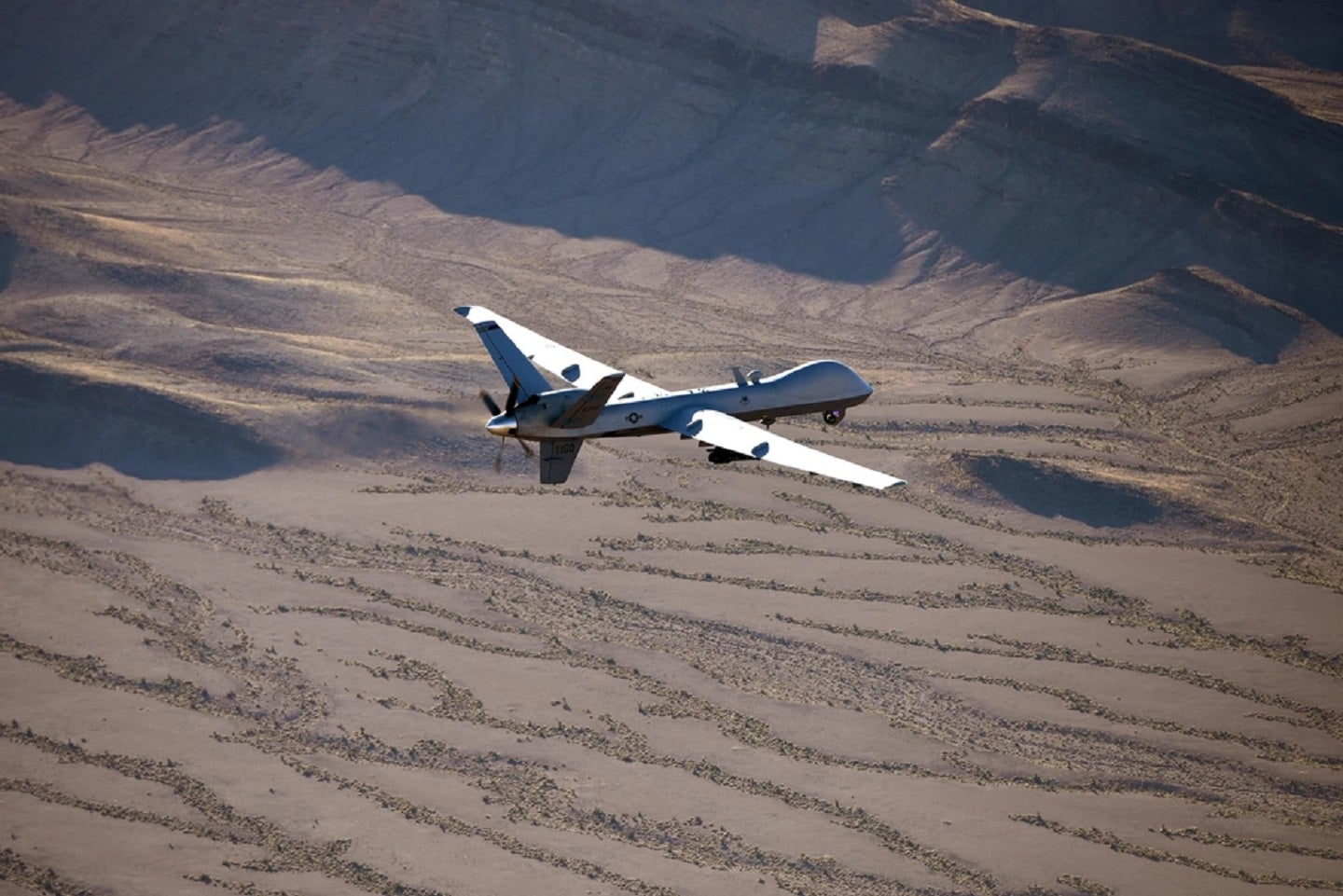
General Atomics Aeronautical Systems Inc. (GA-ASI) has been awarded a $34.2m modification to its contract with the US Navy. The company will provide eight mobile ground control systems (GCS) and six ground data terminals (GDT) for the MQ-9 Reapers procured last year for the US Marine Corps (USMC).
The inducted MQ-9A extended range unmanned aircraft systems (UAS) are said to provide large scale, long-range intelligence, surveillance and reconnaissance capability for the Marine Expeditionary Force.

Discover B2B Marketing That Performs
Combine business intelligence and editorial excellence to reach engaged professionals across 36 leading media platforms.
This type of UAS is designed to extend the aircraft’s endurance to more than 30 hours and is equipped with triple redundant avionics architecture.
The new GCSs and GDTs will support the successful operational capability of the Marine Air Ground Task Force’s expeditionary, medium-altitude, long-endurance MQ-9A Block 5 Reaper air vehicles and GCSs for the navy.
The 2022 fiscal aircraft procurement for Navy funds of $10.8m and the 2023 amount of $23.4m will be made to GA-ASI at the time of award.
Around 60% of the work will occur at GA-ASI headquarters in Poway, CA, with 20% in Saber Springs and Grey Butte, CA respectively. The project is expected to be completed in May 2025.

US Tariffs are shifting - will you react or anticipate?
Don’t let policy changes catch you off guard. Stay proactive with real-time data and expert analysis.
By GlobalDataThis contract follows the satisfaction of the Indian Navy with the performance of the MQ-9s it leases from GA-ASI in the past two years. Two of these UAVs reached their 10,000th flight hour in support of Indian national security missions.
More recently, senior staff from the US embassy in New Delhi visited the Indian Navy station to observe them operating the MQ-9s. This will no doubt have informed the US Navy’s decision to acquire more GCSs and GDTs.
Raghavan Srinivasan, commercial attaché at the US Embassy in New Delhi said: “We were truly impressed by the collaboration we witnessed between the Indian Navy and GA-ASI. The MQ-9 is a proven ISR platform, and the Indian Navy has deployed it to its full potential.”
Poland has also caught wind of the utility of this UAV as it too has ordered an undisclosed number of them from GA-ASI. It is the first military in NATO’s eastern region to purchase the UAV according to GlobalData.
Command and control of the UAV
Considering the MQ-9s popularity, the modified contract represents the due consideration for the ground control stations and data terminals to successfully operate the UAV and interpret the data it provides.
A unique feature described in the contract is the mobility of the GCSs.
James Marques, defence analyst at GlobalData Defence Analyst, states: “By buying a larger number of mobile control stations, the Marines might simply be looking to increase the availability of drone pilots ready to fly at any one time.”
He adds: “These types of agreements are sometimes used to make the administration work of acquiring spare parts a lot quicker and lets the marines decide to ‘scale up’ how much kit or spare parts they are getting at a later date.”
What is clear is that having observed the long success of the Indian Navy’s use of the MQ-9 Reapers, the US Navy is strengthening its existing fleet of drones with the new control stations for the same satisfaction as its Indian counterparts.





